Walmart's struggling Japan unit finally delivers with online grocery growth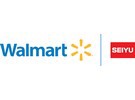 Walmart Inc might finally have found the sweet spot in Japan’s food market with a fast-growing venture ranked third in a nascent online grocery sector, as the brick-and-mortar stores it bought into 2 decades ago continue their search for profit. The barely year-old tie-up between the U.S. supermarket chain’s Seiyu and local e-commerce firm Rakuten Inc clocked 30% sales growth for late October through December versus the same period a year earlier when Seiyu was going it alone, said Rakuten Seiyu NetSuper Chief Executive Tamae Takeda. “We’re doing even better since the start of the new year.” Takeda told Reuters. Concerns over the ongoing coronavirus epidemic may be encouraging people to try the service, she said. “People aren’t really wanting to go out”.
Walmart Inc might finally have found the sweet spot in Japan’s food market with a fast-growing venture ranked third in a nascent online grocery sector, as the brick-and-mortar stores it bought into 2 decades ago continue their search for profit. The barely year-old tie-up between the U.S. supermarket chain’s Seiyu and local e-commerce firm Rakuten Inc clocked 30% sales growth for late October through December versus the same period a year earlier when Seiyu was going it alone, said Rakuten Seiyu NetSuper Chief Executive Tamae Takeda. “We’re doing even better since the start of the new year.” Takeda told Reuters. Concerns over the ongoing coronavirus epidemic may be encouraging people to try the service, she said. “People aren’t really wanting to go out”.
Source: reuters.com
Finland: Kesko's acquisition of Heinon Tukku blocked by Market Court Finland's Market Court has blocked the acquisition of the Heinon Tukku foodservice wholesale business by Kesko. The retailer announced its intention to buy the wholesale business in May of last year, from the family-owned company Tukkuheino Oy and private individuals. In a statement, the president of Kesko's grocery trade division, Ari Akseli, said that the group "had hoped for a different outcome" from the court. "We will now review the Market Court decision and its statement of reasons and then decide if we wish to continue the process", he said. "The Market Court decision has not gained legal force yet". According to Kesko, the development of its foodservice business is a 'central part of the strategy' for its grocery trade division.
Finland's Market Court has blocked the acquisition of the Heinon Tukku foodservice wholesale business by Kesko. The retailer announced its intention to buy the wholesale business in May of last year, from the family-owned company Tukkuheino Oy and private individuals. In a statement, the president of Kesko's grocery trade division, Ari Akseli, said that the group "had hoped for a different outcome" from the court. "We will now review the Market Court decision and its statement of reasons and then decide if we wish to continue the process", he said. "The Market Court decision has not gained legal force yet". According to Kesko, the development of its foodservice business is a 'central part of the strategy' for its grocery trade division.
Source: esmmagazine.com
South Korea: Coupang to build its largest logistics centre South Korea’s largest online retailer will build a high-tech fulfillment centre in Daegu. The company will invest KRW320bln (US$276mln) to build a mega logistics centre in Daegu National Industry Complex, North Gyeongsang Province. Equivalent to the size of 46 football fields, the centre will cover 330,000 square metres and is expected to be completed in 2021. The centre will serve as a key hub to provide a nationwide logistics system for its signature free-next-day delivery service, known as Rocket Delivery.
South Korea’s largest online retailer will build a high-tech fulfillment centre in Daegu. The company will invest KRW320bln (US$276mln) to build a mega logistics centre in Daegu National Industry Complex, North Gyeongsang Province. Equivalent to the size of 46 football fields, the centre will cover 330,000 square metres and is expected to be completed in 2021. The centre will serve as a key hub to provide a nationwide logistics system for its signature free-next-day delivery service, known as Rocket Delivery.
Source: retailanalysis.igd.com
Russia: Yandex bets on super-fast grocery delivery The Russian tech giant Yandex is taking on Russia’s supermarket chains by offering super-fast delivery service that promises to get groceries to your door in under 15 minutes. Russia’s internet giant and the most valuable tech company in Europe expects the service will revolutionise the entire food retail segment and disrupt the whole sector. So far, the service has only been launched in Moscow where Yandex runs a network of warehouses with an area of about 150 square meters each, or roughly, the size of a small convenience store, each serving a designated area of about a mile in radius. That facilitates fast delivery, making Yandex stand out among major competitors, such as Perekrestok and Utkonos that offer same day or next day delivery.
The Russian tech giant Yandex is taking on Russia’s supermarket chains by offering super-fast delivery service that promises to get groceries to your door in under 15 minutes. Russia’s internet giant and the most valuable tech company in Europe expects the service will revolutionise the entire food retail segment and disrupt the whole sector. So far, the service has only been launched in Moscow where Yandex runs a network of warehouses with an area of about 150 square meters each, or roughly, the size of a small convenience store, each serving a designated area of about a mile in radius. That facilitates fast delivery, making Yandex stand out among major competitors, such as Perekrestok and Utkonos that offer same day or next day delivery.
Source: intellinews.com
Green study finds Tesco most sustainable retailer in Malaysia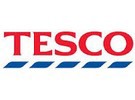 Tesco Stores (M) Sdn Bhd has been ranked the most environmentally sustainable retailer in a study conducted by WWF-Malaysia. The first such rating of its kind in Malaysia, the Sustainable Retailers Scorecard was designed to evaluate the environmental performance as well as the sustainability policies and practices of the country’s top retailers. The retailers were required to complete a survey questionnaire and undergo interviews assessing environmental policies, sustainable packaging, sustainable sourcing, waste management and green initiatives and consumer approaches.
Tesco Stores (M) Sdn Bhd has been ranked the most environmentally sustainable retailer in a study conducted by WWF-Malaysia. The first such rating of its kind in Malaysia, the Sustainable Retailers Scorecard was designed to evaluate the environmental performance as well as the sustainability policies and practices of the country’s top retailers. The retailers were required to complete a survey questionnaire and undergo interviews assessing environmental policies, sustainable packaging, sustainable sourcing, waste management and green initiatives and consumer approaches.
Source: freemalaysiatoday.com
Luxembourg: SCP Group acquires Real hypermarket from Metro AG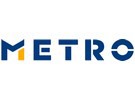 Luxembourg-based SCP Group has entered into an agreement to acquire the entire business of Real hypermarket from German wholesaler, Metro. The transaction includes 276 Real stores, its digital business (including the online marketplace real.de), 80 real estate properties, and all companies affiliated to Real. The investment firm has partnered with x+bricks Group to oversee the repositioning of the business' real estate portfolio. The partners will initiate a process to define viable concepts for the future of all Real stores after the closing of the deal, Metro said in a statement.
Luxembourg-based SCP Group has entered into an agreement to acquire the entire business of Real hypermarket from German wholesaler, Metro. The transaction includes 276 Real stores, its digital business (including the online marketplace real.de), 80 real estate properties, and all companies affiliated to Real. The investment firm has partnered with x+bricks Group to oversee the repositioning of the business' real estate portfolio. The partners will initiate a process to define viable concepts for the future of all Real stores after the closing of the deal, Metro said in a statement.
Source: esmmagazine.com
Carrefour faces Kenyan watchdog wrath over unfair supplier deals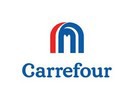 Kenya’s competition watchdog has fined Carrefour and ordered the French retail giant to review all its supply agreements within 60 days after the supermarket chain was found to be exploiting traders who supply it with goods. The Competition Authority of Kenya (CAK) also ordered Carrefour, through its franchise holder Majid al Futtaim’s (MAF), to expunge six items from its supplier contracts that are said to give the store the power to offer ultra-competitive pricing to boost sales and increase market share.
Kenya’s competition watchdog has fined Carrefour and ordered the French retail giant to review all its supply agreements within 60 days after the supermarket chain was found to be exploiting traders who supply it with goods. The Competition Authority of Kenya (CAK) also ordered Carrefour, through its franchise holder Majid al Futtaim’s (MAF), to expunge six items from its supplier contracts that are said to give the store the power to offer ultra-competitive pricing to boost sales and increase market share.
Source: theeastafrican.co.ke
German retailer Lidl increases minimum wages of its employees in Romania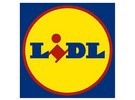 The local subsidiary of the German retail chain Lidl announced that the smallest monthly gross income paid to its employees will exceed RON 4,000 (EUR 840), starting March 1, up from the current level of RON 3,500 (EUR 730). That is about RON 2,500 (EUR 520) in net terms, representing the highest minimum revenue in the local retail sector. The figure includes salary, meal vouchers, annual Easter and Christmas bonuses, as well as other types of bonuses. This comes after Kaufland, the other retailer in the German group Schwarz, announced higher wages in Romania as well, to RON 3,650 in gross terms including salary, meal vouchers and bonuses. For comparison, the economy-wide minimum gross wage is RON 2,230 (RON 1,346 in net terms) as of January 2020.
The local subsidiary of the German retail chain Lidl announced that the smallest monthly gross income paid to its employees will exceed RON 4,000 (EUR 840), starting March 1, up from the current level of RON 3,500 (EUR 730). That is about RON 2,500 (EUR 520) in net terms, representing the highest minimum revenue in the local retail sector. The figure includes salary, meal vouchers, annual Easter and Christmas bonuses, as well as other types of bonuses. This comes after Kaufland, the other retailer in the German group Schwarz, announced higher wages in Romania as well, to RON 3,650 in gross terms including salary, meal vouchers and bonuses. For comparison, the economy-wide minimum gross wage is RON 2,230 (RON 1,346 in net terms) as of January 2020.
Source: romania-insider.com
Finnish retailers launch parcel lockers with integrated cold storage Parcel service Smartmile, Konecranes Agilon and K Group, one of the largest retail chains in Finland have launched robotic parcel machines which combine storage at room and refrigerator temperatures. The service is active in 2 locations in Finland. The parcel machine allows customers to pick up their groceries and their online orders from one pick up point at any time of the day. With this innovative solution customers can pick up their groceries and all their other parcels around the clock as the robotic parcel machines are installed outside for easy access. Consumers can order their weekly groceries to the parcel machine by using the K Group’s application for online grocery orders. When the order has been placed the groceries are collected and inserted to the parcel machine by the store personnel. The parcel machines are installed in 2 K-stores in Finland: in K-Supermarket Pajala, Järvenpää and in K-Supermarket Hämeenkylä, Vantaa.
Parcel service Smartmile, Konecranes Agilon and K Group, one of the largest retail chains in Finland have launched robotic parcel machines which combine storage at room and refrigerator temperatures. The service is active in 2 locations in Finland. The parcel machine allows customers to pick up their groceries and their online orders from one pick up point at any time of the day. With this innovative solution customers can pick up their groceries and all their other parcels around the clock as the robotic parcel machines are installed outside for easy access. Consumers can order their weekly groceries to the parcel machine by using the K Group’s application for online grocery orders. When the order has been placed the groceries are collected and inserted to the parcel machine by the store personnel. The parcel machines are installed in 2 K-stores in Finland: in K-Supermarket Pajala, Järvenpää and in K-Supermarket Hämeenkylä, Vantaa.
Source: postandparcel.info
Germany: Lidl and Kaufland helping shoppers to buy responsibly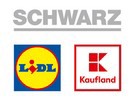 Lidl and Kaufland have committed to reducing their consumption of single-use plastics throughout their operations and range by 2025. This is part of their 360-degree strategy to help educate shoppers about environmental responsibility, to review the use of plastics in their operations and work in partnership with suppliers to reduce the use of plastic packaging. To underline the success of these steps, the German retailers have launched a campaign to illustrate how they have executed the strategy in their REset Plastic initiative.
Lidl and Kaufland have committed to reducing their consumption of single-use plastics throughout their operations and range by 2025. This is part of their 360-degree strategy to help educate shoppers about environmental responsibility, to review the use of plastics in their operations and work in partnership with suppliers to reduce the use of plastic packaging. To underline the success of these steps, the German retailers have launched a campaign to illustrate how they have executed the strategy in their REset Plastic initiative.
Source: retailanalysis.igd.com
Food delivery in Canada is booming, but price is an issue for consumers: survey Canadians are crazy about food delivery. In 2019, Canadians ordered nearly $1.5bln in meals using a food delivery app (such as Uber Eats and Skip the Dishes), according to Restaurants Canada. The meal-kit industry, with services like Hello Fresh and Chefs Plate, has roughly tripled in 5 years and is expected to exceed $400mln in sales in 2020, according to NPD Canada. While business is booming, a new Angus Reid/Dalhousie University study suggests service providers have to address major issues if they want to remain successful. In a survey of more than 1,550 Canadians, nearly two-thirds of respondents (64%) believe the prices are too high. The temperature of the food delivered was an issue for 45% of respondents, followed by over-packaging (32%).
Canadians are crazy about food delivery. In 2019, Canadians ordered nearly $1.5bln in meals using a food delivery app (such as Uber Eats and Skip the Dishes), according to Restaurants Canada. The meal-kit industry, with services like Hello Fresh and Chefs Plate, has roughly tripled in 5 years and is expected to exceed $400mln in sales in 2020, according to NPD Canada. While business is booming, a new Angus Reid/Dalhousie University study suggests service providers have to address major issues if they want to remain successful. In a survey of more than 1,550 Canadians, nearly two-thirds of respondents (64%) believe the prices are too high. The temperature of the food delivered was an issue for 45% of respondents, followed by over-packaging (32%).
Source: canadiangrocer.com
US: Giant and UFCW reach tentative contract agreement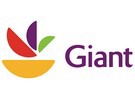 Giant Food reported: "Giant Food is pleased to have reached a tentative agreement with UFCW Locals 400 and 27. Working together with the union, we have enhanced the industry-leading compensation and benefits earned by our associates - importantly protecting healthcare and retirement - while at the same time ensuring the continued viability of our business and the jobs it provides to our 16,500 union associates. Additional details will be provided in the coming weeks. Giant Food would like to recognize our associates, who throughout negotiations demonstrated uncompromising dedication and service to our stores and our customers. We appreciate their commitment and hard work, and believe this agreement continues to honor our associates for their contributions to our success, while reflecting the economic needs of the business and competitive realities facing the company. Giant Food is proud to have successfully negotiated more than 30 collective bargaining agreements with the UFCW over the past 20 years."
Giant Food reported: "Giant Food is pleased to have reached a tentative agreement with UFCW Locals 400 and 27. Working together with the union, we have enhanced the industry-leading compensation and benefits earned by our associates - importantly protecting healthcare and retirement - while at the same time ensuring the continued viability of our business and the jobs it provides to our 16,500 union associates. Additional details will be provided in the coming weeks. Giant Food would like to recognize our associates, who throughout negotiations demonstrated uncompromising dedication and service to our stores and our customers. We appreciate their commitment and hard work, and believe this agreement continues to honor our associates for their contributions to our success, while reflecting the economic needs of the business and competitive realities facing the company. Giant Food is proud to have successfully negotiated more than 30 collective bargaining agreements with the UFCW over the past 20 years."
Source: prnewswire.com
US: SpartanNash posts 15th straight quarter of sales growth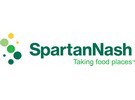 Last year's acquisition of Martin's Super Markets gave SpartanNash a boost in the fourth quarter, helping the company achieve its 15th consecutive quarter of sales growth. For the fourth quarter ended December 28, SpartanNash had net sales growth of 5.3% to $2bln from $1.90bln in the prior year quarter. Retail same-store sales increased 0.5%, the company's second consecutive quarter of positive comps. Gross profit for the fourth quarter was $286.7mln, or 14.4% of net sales, compared to $245.4mln, or 12.9% of net sales, in the prior year quarter. The growth in gross profit and improvement as a percent of net sales was primarily driven by the acquisition of Martin's and the resulting higher mix of retail sales.
Last year's acquisition of Martin's Super Markets gave SpartanNash a boost in the fourth quarter, helping the company achieve its 15th consecutive quarter of sales growth. For the fourth quarter ended December 28, SpartanNash had net sales growth of 5.3% to $2bln from $1.90bln in the prior year quarter. Retail same-store sales increased 0.5%, the company's second consecutive quarter of positive comps. Gross profit for the fourth quarter was $286.7mln, or 14.4% of net sales, compared to $245.4mln, or 12.9% of net sales, in the prior year quarter. The growth in gross profit and improvement as a percent of net sales was primarily driven by the acquisition of Martin's and the resulting higher mix of retail sales.
Source: progressivegrocer.com
US: Instacart introduces "Shop Talk" - a new virtual community for shoppers Instacart, a North American leader in online grocery, announced Shop Talk, the new virtual community for Instacart shoppers. Shop Talk is a virtual community that brings shoppers and the company together, providing a space for open conversation, discussion, sharing, and learning. Within Shop Talk, shoppers will be able to discuss anything related to Instacart, whether they are new to the platform and want advice from more seasoned shoppers, have questions about how to address unique situations, or want to share their experiences with fellow shoppers. Along with discussion opportunities, shoppers can also leave direct feedback about the Shopper app in the form of Shopper Ideas. The ideas that receive enough upvotes from the community will be presented directly to the Instacart team on a quarterly basis for consideration to be incorporated into the Shopper app.
Instacart, a North American leader in online grocery, announced Shop Talk, the new virtual community for Instacart shoppers. Shop Talk is a virtual community that brings shoppers and the company together, providing a space for open conversation, discussion, sharing, and learning. Within Shop Talk, shoppers will be able to discuss anything related to Instacart, whether they are new to the platform and want advice from more seasoned shoppers, have questions about how to address unique situations, or want to share their experiences with fellow shoppers. Along with discussion opportunities, shoppers can also leave direct feedback about the Shopper app in the form of Shopper Ideas. The ideas that receive enough upvotes from the community will be presented directly to the Instacart team on a quarterly basis for consideration to be incorporated into the Shopper app.
Source: prnewswire.com
US: Blue Apron is considering selling itself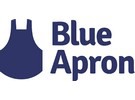 Meal kit company Blue Apron has long been on the struggle bus - whether it’s been its lackluster debut on the public market, employee lawsuits or layoffs. So, it should come as no surprise that the company is considering selling itself in order to maximize value for shareholders. In addition to a potential sale, Blue Apron is exploring a merger, raising capital through either the public or private markets, selling off assets or some combination of the above.
Meal kit company Blue Apron has long been on the struggle bus - whether it’s been its lackluster debut on the public market, employee lawsuits or layoffs. So, it should come as no surprise that the company is considering selling itself in order to maximize value for shareholders. In addition to a potential sale, Blue Apron is exploring a merger, raising capital through either the public or private markets, selling off assets or some combination of the above.
Source: techcrunch.com
